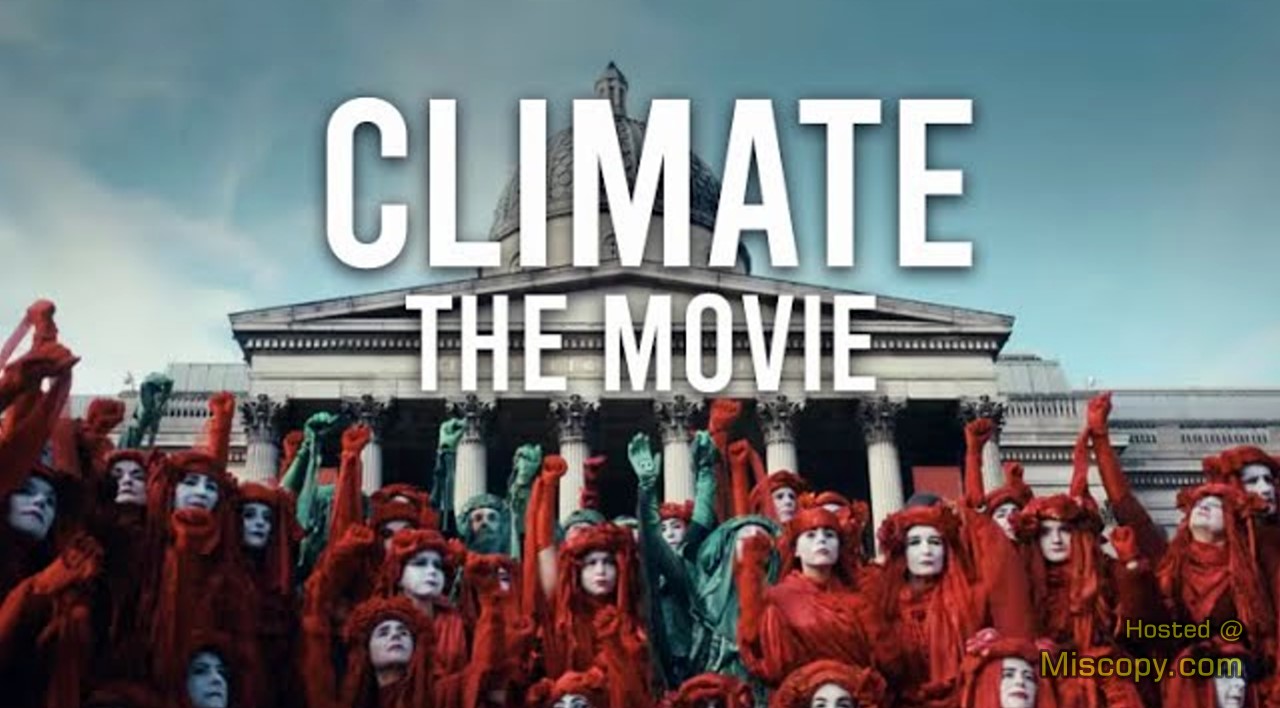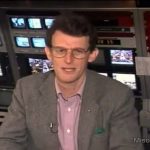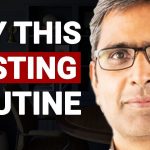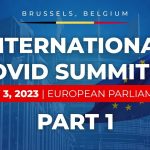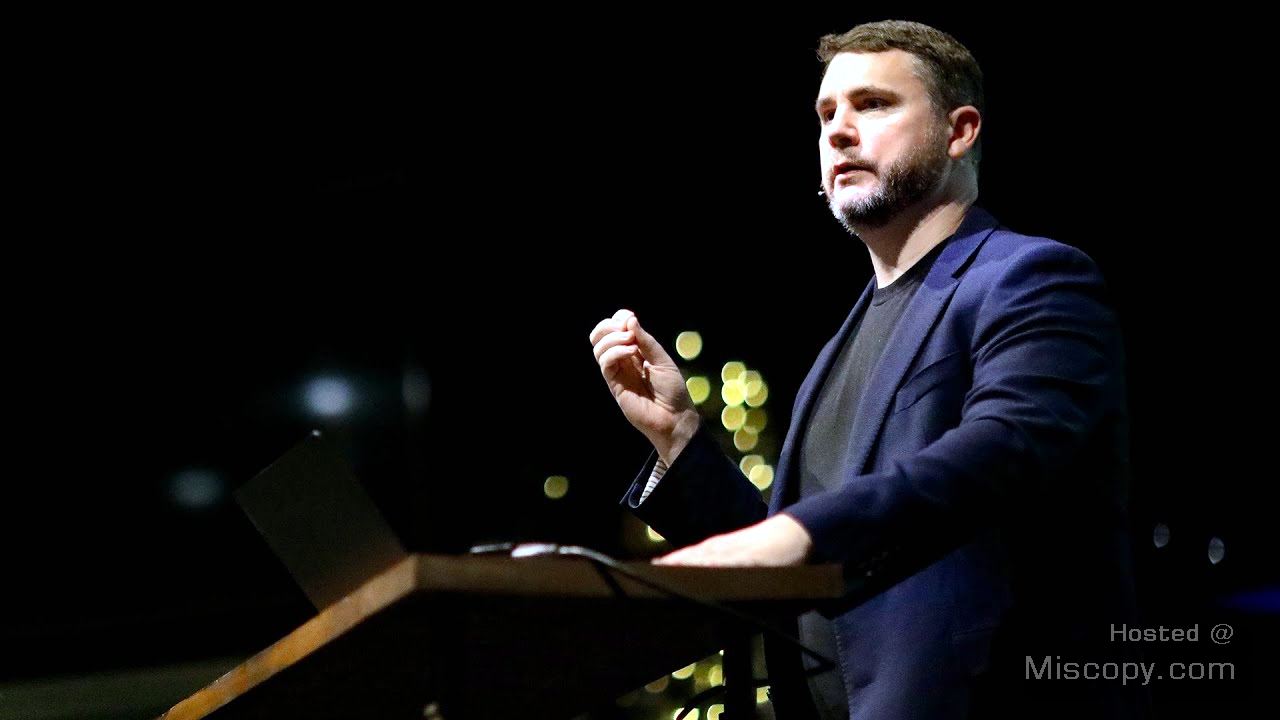This video challenges the climate change industry, accusing it of prioritizing money over the environment and dismissing the climate crisis as a hoax. The speakers argue that current temperatures are not unprecedented and that historical temperature trends have significantly impacted the evolution of mammals, including humans.
The video also criticizes the notion that scientific truth is determined by consensus and introduces respected scientists who dismiss the climate alarm. They discuss the urban heat island effect and its impact on temperature records, questioning the accuracy of temperature data used to monitor global warming.
The speakers also explore the historical relationship between carbon dioxide levels and temperatures, arguing that temperature changes precede CO2 increases. They challenge the accuracy of climate modeling efforts and the role of solar activity in climate change, suggesting that the sun, not CO2, is the primary driver of climate change.
The scientists also discuss the political origins of the climate alarm and the vast number of jobs and funding that depend on the continuation of the climate crisis narrative.
The consequences of challenging the climate consensus in the scientific community is also discussed, including backlash from family, colleagues, and funding institutions. The scientists argue that the climate debate has become corrupt and authoritarian, with the imposition and enforcement of the official climate consensus through schools, universities, government, and media.
The speakers also criticize the hypocrisy of Western environmentalists who call for degrowth and the reduction of industrial manufacturing while ignoring the negative consequences on developing countries, particularly in Africa. The climate agenda is losing support due to the rest of the world not following suit, and people are growing skeptical of climate alarmism and the scientific establishment.
The ideology of sustainability is unappealing to most people, and there is a growing backlash against climate protesters. The speaker suggests that there is a suspicion that the climate change narrative is driven by self-interest and a desire for more money and power from the publicly funded establishment.
Detailed Description
The video begins with the speaker criticizing the climate change industry for prioritizing money over the environment and the potential negative impacts on ecosystems and human lives. He argues that the climate crisis is a hoax and a scam, with billions and even trillions of dollars at stake.
The speaker, who has built their career on climate research, expresses concern about the end of their livelihood if the climate crisis is not as severe as initially claimed. They accuse climate researchers of corruption and bullying those who challenge the climate alarm.
The video also touches on the potential for increased government power and authoritarian measures under the guise of saving the planet. The speaker quotes scientists like Professor Alan Sokal and Dick Lindzen, who dismiss the claims of climate alarmists, and accuses those who question the climate crisis of being anti-science and flat earthers.
The speaker then challenges the notion that scientific truth is determined by consensus and introduces several respected scientists, including Dr. John Clauser, a Nobel laureate, who dismiss the climate alarm as nonsense. The speaker argues that current temperatures are not unprecedented and points to geological evidence, such as the Desert of Judea and its ancient lake bed, to demonstrate that temperatures have varied greatly throughout Earth’s history. The speaker asserts that the Earth is currently in a remarkably cool period compared to the last 550 million years.
The historical temperature trends on Earth and how they have impacted the evolution of mammals, including humans, is then discussed. The speaker explains that the Earth has been in an Ice Age for the past 50 million years, with temperatures steadily declining. However, during certain periods, such as the Holocene Climate Optimum, temperatures were warmer than they are today, leading to the emergence of civilizations.
The speaker also notes that temperature fluctuations have occurred throughout history, with periods of extreme cold and milder temperatures. Despite current concerns about global warming, the speaker points out that temperature fluctuations have always occurred and that the current warming trend is a recovery from the Little Ice Age. The speaker also puts the current temperature increase in perspective, noting that temperature variations from year to year can be much greater than the reported increase in temperature since 1880.
Professor Ross McKitrick discusses the urban heat island effect and its impact on temperature records. He explains that thermometers located in urban areas give out different readings than those in rural areas due to urbanization and human activity. This phenomenon, known as the urban heat island effect, can result in urban temperatures being several degrees Celsius warmer than surrounding rural areas.
The expansion of towns and suburbs over the 20th century has led to an increase in non-climate influences affecting temperature readings, raising questions about the quality of thermometer data for monitoring global warming. To correct for this, a team led by Dr. William Soon used only records from rural weather stations and showed that temperatures rose from the 1880s but peaked in the 1940s, then cooled until the 1970s, and have since barely surpassed the temperatures of the 1940s.
The ocean temperature record from around 1900 also shows far less warming in the 20th century and more closely resembles the rural temperature record. Other temperature records, such as tree rings and mercury thermometers on ships, also show little warming. Satellite temperature records also tell a different story, with temperatures showing little warming since the 1970s.
The discussion then revolves around the use of satellites to monitor global temperatures and the analysis of temperature records. Dr. Spencer and his colleague, Professor John Christie, are credited for their revolutionary development of weather satellites, providing complete global coverage since 1979. The critical question addressed is whether there has been a significant warming trend, and satellites are uniquely positioned to answer this question.
Urbanization, specifically the urban heat island effect, has contributed to the warming trend, particularly in land records. However, multiple sources, including weather balloon records, satellite records, and ocean records, suggest that the official global temperature record may be showing excessive warming due to urbanization contamination. The findings challenge the notion that human emissions of CO2 are the primary cause of the warming trend over the last 120 years.
The video also highlights the historical context of CO2 levels, revealing that they have been much higher in the Earth’s geological past, and current levels are relatively low by comparison. CO2 is essential for plant growth, and higher levels of atmospheric CO2 in the past led to a greener world and increased biodiversity.
The speaker continues by discussing the historical relationship between carbon dioxide (CO2) levels and temperatures on Earth. Contrary to the popular belief that CO2 causes temperature increases, the speaker argues that temperature changes precede CO2 changes. The speaker cites evidence from ancient ice cores, which show that temperature rises before CO2 increases, and that CO2 levels are highest during ice ages and lowest during warmer periods. The speaker also points out that industrial CO2 output has not matched the temperature record, with most warming occurring before the significant increase in industrial production. The speaker concludes by stating that CO2 has never driven temperature changes in the past and that recent temperature increases are not caused by CO2.
The accuracy of climate modeling efforts is then challenged, stating that virtually all models produce too much warming since 1979 and don’t agree with observed temperatures. The speaker asserts that CO2 does not drive climate change and that clouds are the most powerful force in controlling the Earth’s climate. According to the speaker, Professor Henrik Svensmark from the Danish National Space Institute and astrophysicist Jasper Shiv have found a link between clouds and cosmic rays from exploding supernovas in the galaxy.
The amount of cloud cover on Earth is related to our journey around the Milky Way, and using geology, one can reconstruct the climates on Earth over the past billion years, which tells the same story as our Galactic journey. The sun, as a source of heat and light, also plays a significant role in climate change through its magnetic storms and solar wind, which affect Earth directly and indirectly.
The role of solar activity in climate change is then discussed, specifically the impact of solar wind and cosmic rays on cloud formation and Earth’s temperature. The speaker presents evidence from solar activity records and ocean temperature reconstructions, suggesting that solar activity is the primary driver of climate change, not carbon dioxide (CO2).
The speaker criticizes the Intergovernmental Panel on Climate Change (IPCC) for ignoring the sun’s role in the climate system and for focusing solely on CO2. The speaker also challenges the notion that extreme weather events, such as heat waves, hurricanes, forest fires, and droughts, are increasing and attributes them to natural climate variability rather than human influence. The speaker encourages people to examine temperature records and historical data to gain a better understanding of climate trends.
The speaker also challenges the notion of a climate emergency by presenting data on wildfires, hurricanes, melting ice caps, drought, and polar bears, all suggesting no significant long-term changes or increases. The speaker further criticizes the climate science community for its alleged consensus on man-made climate chaos, claiming it began as an eccentric scare story in the 1980s and grew into a multi-billion-dollar industry with researchers from various disciplines jumping on the bandwagon for funding opportunities. The speaker argues that few of these studies question the existence of climate change, leading to the declaration of a scientific consensus.
Government funding of climate research, which has led to a financial incentive for scientists to exaggerate the evidence of global warming is then discussed. During the Cold War, many government research bodies were established, but with the end of the Cold War and pressure on government spending, these organizations have struggled to justify their continued funding.
The speaker argues that climate research became a godsend for scientists as it brought significant funding from the government. If scientists did not find evidence of global warming or downplayed its significance, their funding would end. This financial incentive led to a huge exaggeration of the issue, with the publicly funded science establishment having a direct financial interest in playing up the alarm. The climate industry has since grown exponentially, with trillions of dollars being spent annually on renewable energy and related jobs. The growth of this industry has created a demand for highly paid green jobs, from sustainability officers to carbon offset advisers and ESG consultants.
Universities and businesses have also hired climate officers and established climate programs, creating a pressure to sign up to the climate agenda. The UN’s publically funded PCC conference saw 70,000 delegates fly in from around the world, further highlighting the financial and political significance of the climate industry.
And the debate moves on to the vast number of jobs and funding that depend on the continuation of the climate crisis narrative. The speaker explains that many individuals and organizations, including government bureaucrats, environmental journalists, heads of renewable companies, and climate researchers, have built their careers and industries around the existence of the climate crisis. However, if it is discovered that CO2 is not having the negative impacts originally claimed, the entire industry could be threatened, as their existence and funding depend on the crisis being an existential threat.
The speaker also mentions the suppression of research that contradicts the narrative and the marginalization of scientists who question it. The media’s role in perpetuating the narrative, regardless of the accuracy of the predictions, is also addressed.
The speaker then discusses the political origins of the climate alarm and how it has become synonymous with disdain for free market capitalism and a yearning for bigger government. The climate scare, according to the speaker, began as a political tool from the environmental movement to blame industrial capitalism for the destruction of the planet. The solution, as proposed by climate alarmists, is for the government to regulate private companies and even guide individuals’ lives through micromanaging policies.
The speaker argues that support for the climate alarm is almost universal among those who depend on government for their livelihoods, including publicly funded education, art, and science establishments. Questioning the climate alarm is socially unacceptable, and climate skeptics face vitriolic attacks and even professional consequences. The speakers Henrik Svensmark and Nir Shaviv share personal experiences of facing backlash for publishing results on the climatic effects of solar activity.
Dr. Matthew Wicki discusses the consequences of speaking out against the climate consensus in the scientific community. Wicki, a former assistant professor of geology at the University of Alabama, shares how expressing skepticism about climate change led to backlash from his family, colleagues, and funding institutions. He explains that publishing research contrary to the consensus was nearly impossible, and young scientists were discouraged from questioning the climate narrative for fear of losing their careers.
Wicki describes the climate consensus as a weapon used to bully and intimidate those who refuse to conform, and a tool for the ruling establishment to increase its power and control over people’s lives. He argues that the climate debate has become corrupt and divorced from science, and that the demands for government intervention in every aspect of life based on the climate narrative are a validation of the government’s authority.
The speaker discusses the growing authoritarianism and censorship surrounding the climate debate. Twenty years ago, the idea of controlling energy use, appliance purchases, and even dictating where people could go would be met with skepticism and dismissal. However, the speaker argues that this is now a reality, with publicly funded establishments in the West imposing and enforcing the official climate consensus through schools, universities, government, and much of the media.
Regulatory bodies prevent private stations from broadcasting skeptical views, and expressing dissent on climate can risk careers and businesses. Activists even call for skepticism to be criminalized in certain jobs and professions. The consequence is a censorious, authoritarian regime that seeks to control every move, word, and action because of the perceived risk to the survival of mankind.
The speaker also notes the irony of climate protesters, who condemn capitalism but are often absent from their rallies are the working classes. Instead, they call for a simpler lifestyle in which the consumption choices of the masses are controlled or prohibited. This creates a clash between affluent environmentalists and the masses who have benefited from capitalism’s abundance of affordable goods. The speaker criticizes this as a form of class hypocrisy and self-interest masquerading as public-spirited concern.
The speaker argues that environmentalists, particularly those in the West, are hypocritical in their calls for degrowth and the reduction of industrial manufacturing, while ignoring the negative consequences of these policies on developing countries. The speaker uses the example of Africa, where access to reliable energy and industrial development are essential for improving agricultural productivity, reducing food waste, and providing clean water.
However, Western environmentalists oppose these developments, relying instead on expensive and unreliable alternatives. The speaker criticizes this agenda as ethically ruthless and depraved, as it prevents African countries from developing and improving their living standards. The speaker also mentions that many countries in Africa and Asia are ignoring these demands and continuing to use fossil fuels for their development.
At the end of the video, the speaker discusses how the climate agenda is losing support due to the rest of the world not following suit in reducing emissions and transitioning to renewable energy. The speaker also mentions that people are growing skeptical of climate alarmism and the scientific establishment, as they feel it will negatively impact their everyday lives and cost them a lot of money.
The speaker notes that the ideology of sustainability, which promotes restriction and doing less, is unappealing to most people. The speaker also shares instances of backlash against climate protesters and mentions that working-class people are becoming increasingly angry about the climate agenda, viewing it as an attack on their lifestyle and freedoms. The speaker suggests that there is a suspicion or realization that the climate change narrative is driven by self-interest and a desire for more money and power from the publicly funded establishment.
